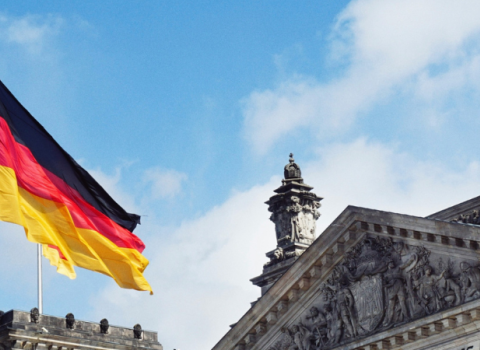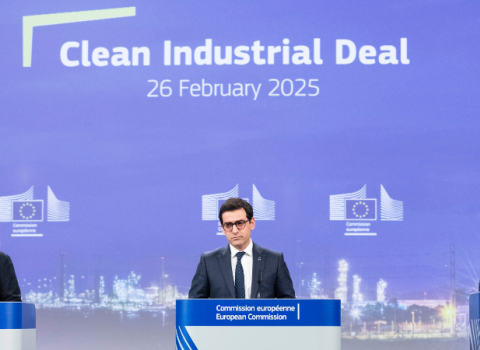But money and visas remain sticking points

Photo credits: Anthony Delanoix / Unsplash
Brussels and London appear to be edging towards a deal that would allow the UK to rejoin the Erasmus+ student mobility scheme, in what would be a further step towards repairing research and education relations damaged by Brexit.
Earlier this week, the UK and EU announced they “should work towards” associating the UK to the scheme, which holds emotional significance for EU leaders as a way of bonding people together across Europe. Plans for a “youth experience scheme” are also being hammered out.
“I am so glad that we have agreed that we will have Erasmus+ for young people,” said European Commission president Ursula von der Leyen in a speech during her visit to London this week that was part of a broader, defence-focused deal with the UK.
While there’s no deal yet, the changed language shows that the two sides are edging closer. But despite von der Leyen presenting it as a done deal, the exact amount London pays to join, and what visas students would need, are still to be negotiated.
“I’m pretty positive about this,” said Thomas Jørgensen, director for policy coordination and foresight at the European University Association. “I’m sure they will find some kind of fudge.”
When the UK left the EU in 2020, London decided not to associate to Erasmus+, baulking at the cost, even as it sought to stay part of the Horizon Europe research and innovation programme, which after years of political wrangling it managed to rejoin in 2024.
Bu momentum towards the UK also rejoining Erasmus+ has been brewing since last summer, when a number of EU diplomats, MEPs and officials made overtures to the new, more pro-European Labour government to rejoin.
Then, the British government remained scrupulously silent over whether it was keen to associate. However, this week marks a shift, confirming that the UK does indeed want to rejoin.
“Erasmus+ association would offer a broad range of opportunities for UK learners and staff across our education, training, youth and sport sectors,” UK government documents explaining the deal say.
But there’s clearly still a bridge to span over exactly how much the UK contributes. Weak at languages, UK students tended to use the mobility scheme far less than their peers in other European countries.
This meant that on pure economic terms, the UK got less out of the scheme than it put in. The UK government once estimated that had the UK associated to Erasmus+ following Brexit, it would have incurred a net loss of nearly £2 billion.
This means that there’s still negotiation to do over the UK’s potential bill. Earlier this week, the UK said it was only taking forward negotiations on the “clear mutual understanding that the UK will only associate to Erasmus+ on significantly improved financial terms.”
Complicating matters further is that Erasmus+ is backloaded, meaning that the last two years of this current programme, which ends in 2027, are particularly costly.
Still, the UK managed to renegotiate its Horizon Europe financial terms to include a compensation mechanism in case it loses out, pointed out Jørgensen, meaning there is a precedent for this kind of deal.
Related articles
- Could the UK rejoin Erasmus+ student mobility scheme?
- UK universities in crisis as centre-left takes power
There are also unanswered questions over what kind of visa Erasmus+ students might need to cross between the UK and EU. British universities might hope for a less onerous application process, given how complex the UK system is, said Jørgensen.
The impetus for association appears to have come largely from the EU side. Getting the UK back into Erasmus+ would be of “symbolic value” in signalling that the UK and EU are “friends and neighbours,” he added.
“We very much regretted the United Kingdom decision not to associate to Erasmus+ at the time of the negotiations for the Trade and Cooperation Agreement [in 2020] so I am personally delighted that this is part of the package agreed yesterday,” said trade commissioner Maroš Šefčovič on May 20, explaining the deal with the UK.
The deal between Brussels and London also included a promise to work together on new green technologies.
“The United Kingdom and the European Commission welcome continued technical regulatory exchanges on new energy technologies such as hydrogen, carbon capture, utilisation and storage and biomethane,” it said.





 A unique international forum for public research organisations and companies to connect their external engagement with strategic interests around their R&D system.
A unique international forum for public research organisations and companies to connect their external engagement with strategic interests around their R&D system.